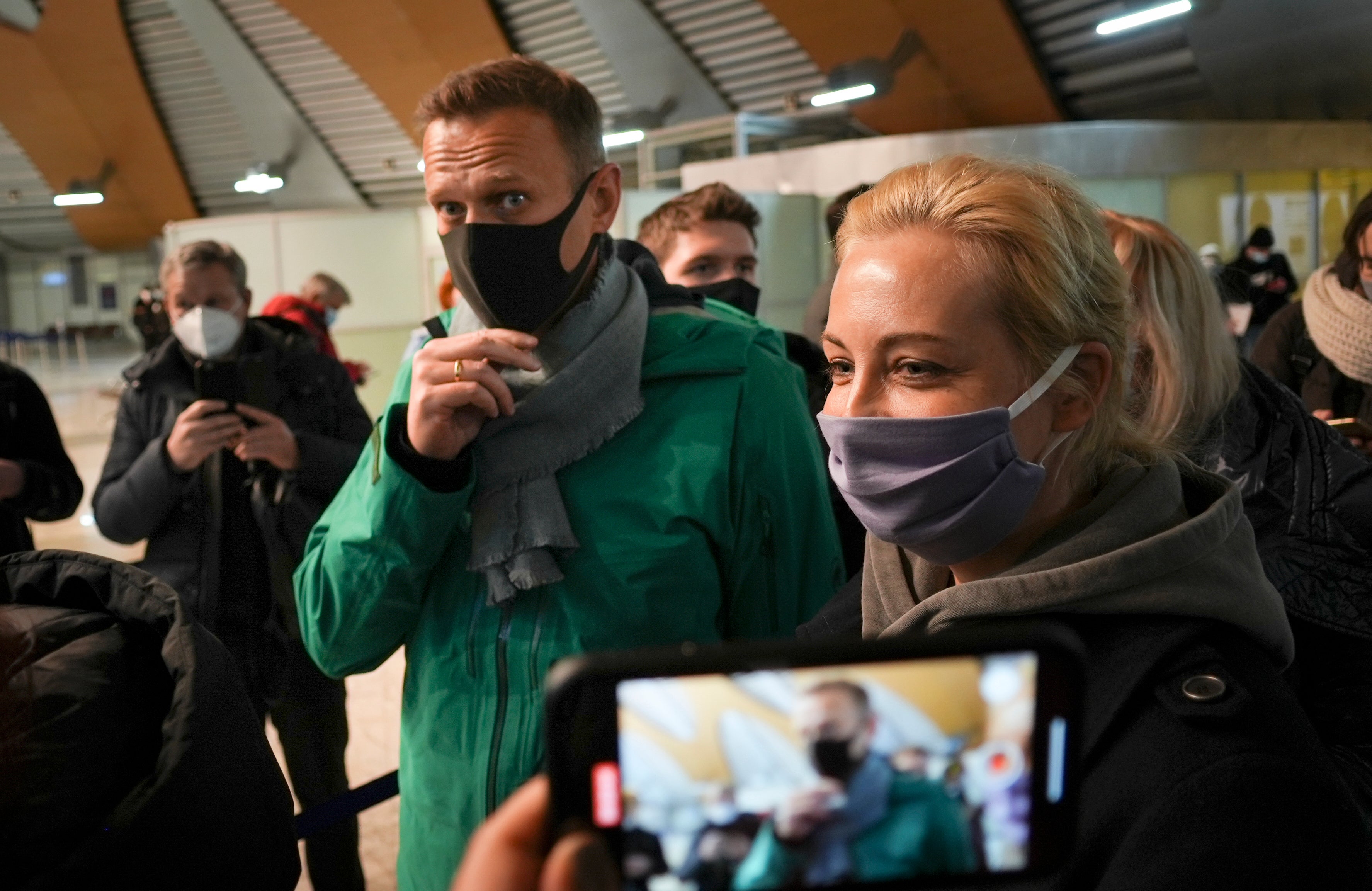Alexei Navalny’s return to the lion’s den has injected fire into local politics
This week the Kremlin set itself a task of downplaying Navalny’s importance – they clearly failed in the task, writes Oliver Carroll


In the two decades of Vladimir Putin’s rule, a handful of events could be described as real turning points.
The terror attack in Beslan in 2004, which ushered in a new era of centralised command. The mass protests of 2011-12, which cleared the way for a decade of crackdown. The annexation of Crimea in 2014, which set a course of international isolationism.
Watching the events of this week unfold leaves you with a similar sense of departure. Quite what comes next is anyone’s guess, but Alexei Navalny’s conscious return to the lion’s den has injected fire into local politics; just as it has unleashed the more primitive, fight-or-flight instincts of the Russian state.
This week, the Kremlin set itself a task of downplaying Navalny’s importance. He was the blogger-too-insignificant-to-name. The Berlin patient who poisoned himself with Novichok. The criminal, who, “like thousands of others”, was being punished for missing his parole hearings.
They have clearly failed in the task.
By first diverting Navalny’s plane under an absurdly false pretext on Sunday, and then staging a kangaroo court practically in his detention cell the next day, the Kremlin has told everyone it is taking the opposition politician more than seriously.
Morality aside, the most striking thing about Sunday’s operation was its lack of sophistication. Just about any other option would have produced better optics. The plane could have been allowed to land, but redirected to another terminal. Navalny could have been allowed in and arrested quietly any time later.
Instead, the Kremlin rubber-stamped a mid-air circus, and then, a day later, a legal theatre that ignored all process. The message they were sending out seemed reasonably clear: we don’t care about the optics any more; please step in line. That new reality will be hard to swallow for many in the political elite – not to mention the public at large.
The other difference that suggests this may be a watermark in Putin’s rule is the international dimension.
Navalny has emerged from his nerve agent poisoning and arrest as a different figure, a politician of world renown. For Amnesty International, he is a prisoner of conscience. Germany, Russia’s traditionally pragmatic and second most important trading partner, appears to agree. On Monday, foreign minister Heiko Mass described his jailing as incomprehensible, and demanded his release.
With the Kremlin’s critics calling for western governments to target a wider range of Kremlin-linked figures, it seems inevitable a new wave of sanctions will follow.
Their severity, and the Kremlin’s reaction to them, will play a part in determining just how big a turning point this week turns out to be.
Yours,
Oliver Carroll
Moscow correspondent



Join our commenting forum
Join thought-provoking conversations, follow other Independent readers and see their replies
Comments